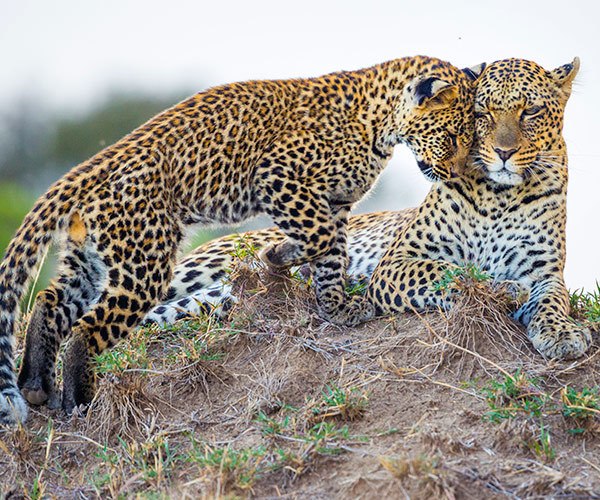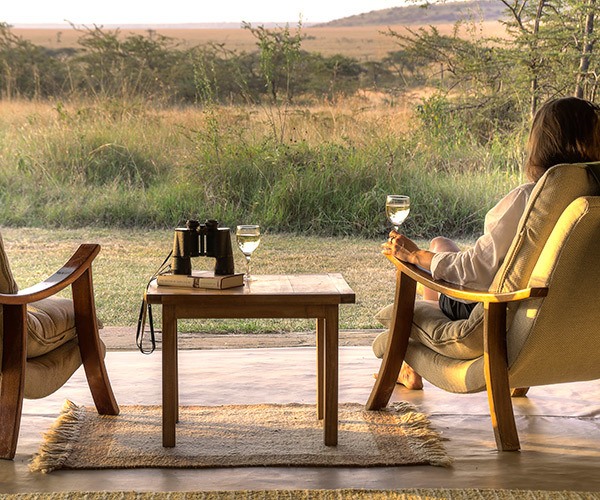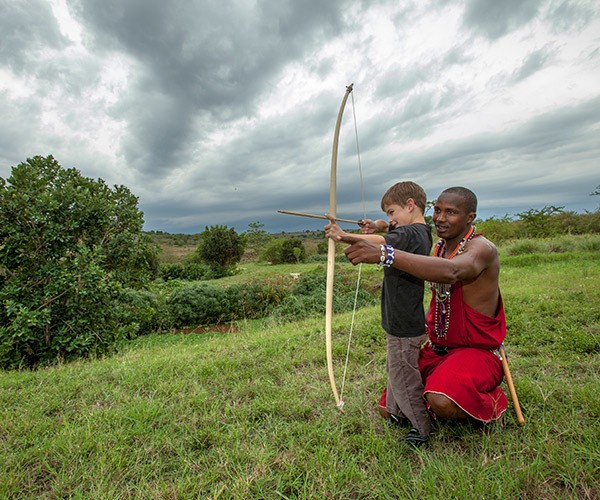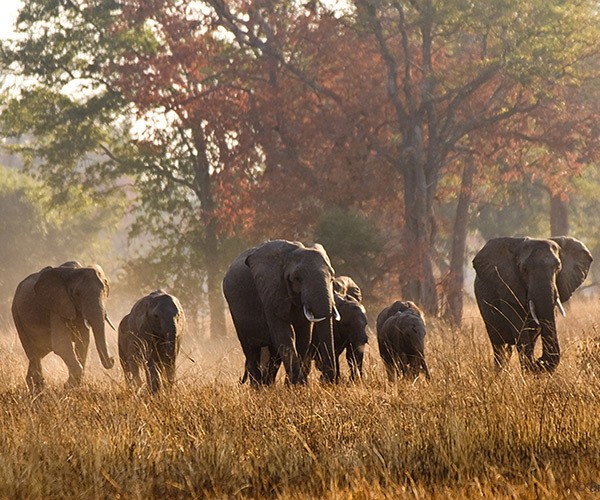Africa · Kenya · Regions · South Africa · Tanzania · Travel Miscellany · Zambia
Travelling with a conscience
Travel and tourism is now one of the biggest industries in the world. The transformative power of travel – of meeting new people, seeing new places, and learning about new cultures – is second to none. But how we travel is increasingly important, too, especially in places where the ecosystems are fragile or the cultural sites are at risk of damage.
 It’s exciting to have seen a real shift in recent years of lodges across Africa committing to responsible travel. We are already seeing firsthand the benefits. It’s not just a case of saving water and minimising our carbon footprint; it’s also about making an active, positive contribution to the places that we go, so that they are not only protected, but can thrive. If you wish to travel with a conscience, these are a few of the things you can do:
Choose eco-friendly properties
The easiest thing to do when you are planning any trip is to ask your tour operator to select lodges, camps, and hotels which have strong green credentials. I assure you that doesn’t mean there’s any loss in luxury: far from it!
It’s exciting to have seen a real shift in recent years of lodges across Africa committing to responsible travel. We are already seeing firsthand the benefits. It’s not just a case of saving water and minimising our carbon footprint; it’s also about making an active, positive contribution to the places that we go, so that they are not only protected, but can thrive. If you wish to travel with a conscience, these are a few of the things you can do:
Choose eco-friendly properties
The easiest thing to do when you are planning any trip is to ask your tour operator to select lodges, camps, and hotels which have strong green credentials. I assure you that doesn’t mean there’s any loss in luxury: far from it!
 Take Kicheche Bush Camp in Kenya, for example. This extremely low impact lodge has received a prestigious gold rating from Eco Tourism Kenya. Each of the gorgeous tented suites has its own solar power system, providing the lighting and electricity you need. The fresh, seasonal produce used to create mouthwatering meals is all grown in the camp’s own kitchen garden, and many of the textiles and furniture have been made by local artisans. This not only contributes to the local economy but also helps the development of local crafts.
Nsolo Bush Camp in Zambia is also solar powered. The entire camp has been made from sustainable local materials. They restrict the number of guests who can stay there, so not only do you get an intimate wildlife viewing experience, but the animals and birds are not unduly disturbed.
Request local guides
Local people are one of the greatest resources that any destination can have. They know their environment better than anyone else, so you’d be mad not to try and learn from their detailed knowledge and life long experience.
Take Kicheche Bush Camp in Kenya, for example. This extremely low impact lodge has received a prestigious gold rating from Eco Tourism Kenya. Each of the gorgeous tented suites has its own solar power system, providing the lighting and electricity you need. The fresh, seasonal produce used to create mouthwatering meals is all grown in the camp’s own kitchen garden, and many of the textiles and furniture have been made by local artisans. This not only contributes to the local economy but also helps the development of local crafts.
Nsolo Bush Camp in Zambia is also solar powered. The entire camp has been made from sustainable local materials. They restrict the number of guests who can stay there, so not only do you get an intimate wildlife viewing experience, but the animals and birds are not unduly disturbed.
Request local guides
Local people are one of the greatest resources that any destination can have. They know their environment better than anyone else, so you’d be mad not to try and learn from their detailed knowledge and life long experience.
 Travelling with local guides not only benefits you, it also contributes positively to the local community. Work like this is a highly valued form of employment and source of income; you’ll be directly supporting families, ensuring that they have a reliable source of income, relatively high standard of living, and are able to pay for essentials we take for granted, such as schooling and health care.
As you build rapport with your guide throughout your trip, you’ll gain a fascinating insight into his or her culture, traditions, and values. You might well be introduced to their family members or friends, and have the opportunity to share a home cooked meal together. Personally, this is one of my very favourite ways to experience a country: the experience is always unique, always rich, and always memorable.
Travel somewhere off the beaten track
If too many tourists visit the same place, not only does it have a damaging impact on the environment – which isn’t designed to accommodate such a high concentration of people – but you’ll be surrounded by other guests, rather than have the intimate experience you’ve come for.
Travelling with local guides not only benefits you, it also contributes positively to the local community. Work like this is a highly valued form of employment and source of income; you’ll be directly supporting families, ensuring that they have a reliable source of income, relatively high standard of living, and are able to pay for essentials we take for granted, such as schooling and health care.
As you build rapport with your guide throughout your trip, you’ll gain a fascinating insight into his or her culture, traditions, and values. You might well be introduced to their family members or friends, and have the opportunity to share a home cooked meal together. Personally, this is one of my very favourite ways to experience a country: the experience is always unique, always rich, and always memorable.
Travel somewhere off the beaten track
If too many tourists visit the same place, not only does it have a damaging impact on the environment – which isn’t designed to accommodate such a high concentration of people – but you’ll be surrounded by other guests, rather than have the intimate experience you’ve come for.
 Instead, you’ll want to discover places with few, if any, other people at all. The wilderness should be wild, the wildlife should be untamed, and the places you stay should be quiet and private. In places such as North Luangwa in Zambia, or the private game reserves bordering the Kruger and Serengeti National Parks, you’ll have all the advantages of the big-name sites, but with none of the downsides. Far from causing damage, you’ll be positively contributing to conservation and community development, so it really is a win-win situation.
Travelling is a privilege, and one which I encourage everyone to do as much as they are able. Use the opportunities you are afforded to discover the wonders of our extraordinary world, and to preserve the environment and help local communities as you travel. Knowing that you are travelling with a purpose and doing good will make you enjoy the experience even more.
Laura Burdett-Munns is Managing Director at Africa Exclusive. Africa Exclusive has been creating the finest tailor-made safaris since 1990, specialising in luxurious accommodation in beautiful remote places.
If you would like to be a guest blogger on A Luxury Travel Blog in order to raise your profile, please contact us.
Instead, you’ll want to discover places with few, if any, other people at all. The wilderness should be wild, the wildlife should be untamed, and the places you stay should be quiet and private. In places such as North Luangwa in Zambia, or the private game reserves bordering the Kruger and Serengeti National Parks, you’ll have all the advantages of the big-name sites, but with none of the downsides. Far from causing damage, you’ll be positively contributing to conservation and community development, so it really is a win-win situation.
Travelling is a privilege, and one which I encourage everyone to do as much as they are able. Use the opportunities you are afforded to discover the wonders of our extraordinary world, and to preserve the environment and help local communities as you travel. Knowing that you are travelling with a purpose and doing good will make you enjoy the experience even more.
Laura Burdett-Munns is Managing Director at Africa Exclusive. Africa Exclusive has been creating the finest tailor-made safaris since 1990, specialising in luxurious accommodation in beautiful remote places.
If you would like to be a guest blogger on A Luxury Travel Blog in order to raise your profile, please contact us.
 It’s exciting to have seen a real shift in recent years of lodges across Africa committing to responsible travel. We are already seeing firsthand the benefits. It’s not just a case of saving water and minimising our carbon footprint; it’s also about making an active, positive contribution to the places that we go, so that they are not only protected, but can thrive. If you wish to travel with a conscience, these are a few of the things you can do:
Choose eco-friendly properties
The easiest thing to do when you are planning any trip is to ask your tour operator to select lodges, camps, and hotels which have strong green credentials. I assure you that doesn’t mean there’s any loss in luxury: far from it!
It’s exciting to have seen a real shift in recent years of lodges across Africa committing to responsible travel. We are already seeing firsthand the benefits. It’s not just a case of saving water and minimising our carbon footprint; it’s also about making an active, positive contribution to the places that we go, so that they are not only protected, but can thrive. If you wish to travel with a conscience, these are a few of the things you can do:
Choose eco-friendly properties
The easiest thing to do when you are planning any trip is to ask your tour operator to select lodges, camps, and hotels which have strong green credentials. I assure you that doesn’t mean there’s any loss in luxury: far from it!
 Take Kicheche Bush Camp in Kenya, for example. This extremely low impact lodge has received a prestigious gold rating from Eco Tourism Kenya. Each of the gorgeous tented suites has its own solar power system, providing the lighting and electricity you need. The fresh, seasonal produce used to create mouthwatering meals is all grown in the camp’s own kitchen garden, and many of the textiles and furniture have been made by local artisans. This not only contributes to the local economy but also helps the development of local crafts.
Nsolo Bush Camp in Zambia is also solar powered. The entire camp has been made from sustainable local materials. They restrict the number of guests who can stay there, so not only do you get an intimate wildlife viewing experience, but the animals and birds are not unduly disturbed.
Request local guides
Local people are one of the greatest resources that any destination can have. They know their environment better than anyone else, so you’d be mad not to try and learn from their detailed knowledge and life long experience.
Take Kicheche Bush Camp in Kenya, for example. This extremely low impact lodge has received a prestigious gold rating from Eco Tourism Kenya. Each of the gorgeous tented suites has its own solar power system, providing the lighting and electricity you need. The fresh, seasonal produce used to create mouthwatering meals is all grown in the camp’s own kitchen garden, and many of the textiles and furniture have been made by local artisans. This not only contributes to the local economy but also helps the development of local crafts.
Nsolo Bush Camp in Zambia is also solar powered. The entire camp has been made from sustainable local materials. They restrict the number of guests who can stay there, so not only do you get an intimate wildlife viewing experience, but the animals and birds are not unduly disturbed.
Request local guides
Local people are one of the greatest resources that any destination can have. They know their environment better than anyone else, so you’d be mad not to try and learn from their detailed knowledge and life long experience.
 Travelling with local guides not only benefits you, it also contributes positively to the local community. Work like this is a highly valued form of employment and source of income; you’ll be directly supporting families, ensuring that they have a reliable source of income, relatively high standard of living, and are able to pay for essentials we take for granted, such as schooling and health care.
As you build rapport with your guide throughout your trip, you’ll gain a fascinating insight into his or her culture, traditions, and values. You might well be introduced to their family members or friends, and have the opportunity to share a home cooked meal together. Personally, this is one of my very favourite ways to experience a country: the experience is always unique, always rich, and always memorable.
Travel somewhere off the beaten track
If too many tourists visit the same place, not only does it have a damaging impact on the environment – which isn’t designed to accommodate such a high concentration of people – but you’ll be surrounded by other guests, rather than have the intimate experience you’ve come for.
Travelling with local guides not only benefits you, it also contributes positively to the local community. Work like this is a highly valued form of employment and source of income; you’ll be directly supporting families, ensuring that they have a reliable source of income, relatively high standard of living, and are able to pay for essentials we take for granted, such as schooling and health care.
As you build rapport with your guide throughout your trip, you’ll gain a fascinating insight into his or her culture, traditions, and values. You might well be introduced to their family members or friends, and have the opportunity to share a home cooked meal together. Personally, this is one of my very favourite ways to experience a country: the experience is always unique, always rich, and always memorable.
Travel somewhere off the beaten track
If too many tourists visit the same place, not only does it have a damaging impact on the environment – which isn’t designed to accommodate such a high concentration of people – but you’ll be surrounded by other guests, rather than have the intimate experience you’ve come for.
 Instead, you’ll want to discover places with few, if any, other people at all. The wilderness should be wild, the wildlife should be untamed, and the places you stay should be quiet and private. In places such as North Luangwa in Zambia, or the private game reserves bordering the Kruger and Serengeti National Parks, you’ll have all the advantages of the big-name sites, but with none of the downsides. Far from causing damage, you’ll be positively contributing to conservation and community development, so it really is a win-win situation.
Travelling is a privilege, and one which I encourage everyone to do as much as they are able. Use the opportunities you are afforded to discover the wonders of our extraordinary world, and to preserve the environment and help local communities as you travel. Knowing that you are travelling with a purpose and doing good will make you enjoy the experience even more.
Laura Burdett-Munns is Managing Director at Africa Exclusive. Africa Exclusive has been creating the finest tailor-made safaris since 1990, specialising in luxurious accommodation in beautiful remote places.
If you would like to be a guest blogger on A Luxury Travel Blog in order to raise your profile, please contact us.
Instead, you’ll want to discover places with few, if any, other people at all. The wilderness should be wild, the wildlife should be untamed, and the places you stay should be quiet and private. In places such as North Luangwa in Zambia, or the private game reserves bordering the Kruger and Serengeti National Parks, you’ll have all the advantages of the big-name sites, but with none of the downsides. Far from causing damage, you’ll be positively contributing to conservation and community development, so it really is a win-win situation.
Travelling is a privilege, and one which I encourage everyone to do as much as they are able. Use the opportunities you are afforded to discover the wonders of our extraordinary world, and to preserve the environment and help local communities as you travel. Knowing that you are travelling with a purpose and doing good will make you enjoy the experience even more.
Laura Burdett-Munns is Managing Director at Africa Exclusive. Africa Exclusive has been creating the finest tailor-made safaris since 1990, specialising in luxurious accommodation in beautiful remote places.
If you would like to be a guest blogger on A Luxury Travel Blog in order to raise your profile, please contact us.Did you enjoy this article?
Receive similar content direct to your inbox.


All good tips, Laura. Allow your heart to guide you and you will make wise decisions benefiting all and honoring your conscience.
I think at this top end of the Travel Market people are often very responsible. They are often experienced travellers and have seen examples of where eco-tourism is making a difference and sadly they have also seen examples of selfish, irresponsible tourism harming our beautiful planet. It is more mid market and budget travel that give me cause for concern where travellers make their choices more on price than environmental impact. We all need to take some time to research our travel options and not just be seduced by the glossy brochures and breath-taking photos. Ideally we need something like an eco version of A Luxury Travel Blog where travellers give feed back on Lyxury + Environmental Care.
Paul – what about a weekly slot for Eco-Travel Option of the week, where travellers can recommend a destination, tour or property?
Jen makes a very good point. People will only think about travelling responsibly if they keep reading, seeing and hearing the evidence. One great post such as an his isn’t enough it has to be drip, drip, drip. Campaigns change behaviour. Look at the decline in smoking. We may be getting there with tackling the mobile phone / driving problem too. We just need more pieces like Laura’s.
Be more David Attenborough.
It is simple. Before you travel just think – “
Would David Attenborough go there? What would he take? What would he ask?
Or should we think – Be more Simon Reeves?
He’s always looking out for the stories behind the paradise images. Looking to see if there’s a darker side.
I don’t want to ruin any one’s travel but we’ve got to accept that sometimes there are costs to the environment from our adventures. I’m just saying be more aware when you travel.
And we can not forget Alan Whicker RIP.
For my generation, growing up in the 1960s and 1970s, it was Whicker who opened our eyes to a world of travel beyond Bournemouth, Brighton and far off exotic Cornwall. It’s palm trees were so exciting. I thought I was in another world.
Oh yes!
I just searched Google for the TV advert of Whicker gliding through the world in his First Class airline seat. Coolly sipping a whiskey as he does so. I found it and watched with sheer nostalgia. It was for Travelocity back in 2005 bringing back loads of memories of all those Whicker’s World programmes.
I always wanted to be Alan Whicker.
Very useful information there for those who would want to start travelling “smartly”. I’ve seen a growth of many eco-friendly hotels all over the world. Employing recycling and green methods while still providing comfort and convenience. Deciding to leave small footprints wherever you go really starts at home. But it’s really good to have those options when you’re travelling.